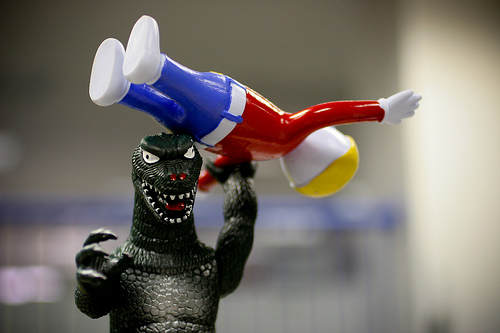I recently finished reading Chrystia Freeland’s Plutocrats, which is about the world’s rising elite class and the enormous buildup of wealth at the top of the spectrum. Easily the most satisfying part of the book is towards the end, when she discusses the potential impact of this phenomenon for our economy and our democracy. Here she shares a brilliant quote from Luigi Zingales, an economics professor at UChicago’s Booth School of Business, which I felt compelled to share:
True capitalism lacks a strong lobby. That assertion might appear strange in light of the billions of dollars firms spend lobbying Congress in America, but that is exactly the point. Most lobbying seeks to tilt the playing field in one direction or another, not to level it. Most lobbying is pro-business, in the sense that it promotes the interests of existing businesses, not pro-market in the sense of fostering truly free and open competition. Open competition forces established firms to prove their competence again and again; strong successful market players therefore often use their muscle to restrict such competition, and to strengthen their positions. As a result, serious tensions emerge between a pro-market agenda and a pro-business one.
Industry has been throwing its weight around to the detriment or the larger marketplace — and to society in general — for decades, if not longer. As Zingales describes, this includes purposefully stifling open competition, and in doing so hurting other companies operating in the marketplace, as well as the consumers who would otherwise benefit from the better quality and prices that a competitive market would bring. To take one recent example we’ve already covered here on this blog, the lines separating media companies, political lobbyists/fundraisers, and government policymaking have been blurred, possibly paving the way for regulators to sign off on ever-growing oligopolies, and thus crowding out efficient competition from smaller firms. In other words… cable is too frigging expensive!
But beyond just stifling competition, there are innumerable ways that businesses and industry groups distort the free market with their political power. More than fifty years ago, Eisenhower prophetically warned of the “military industrial complex”, where an industry that stood to profit from war would skew the nation towards unnecessary debts and perpetual conflict. There are countless corollaries today in other industries. Big banks lobby against financial regulation, strengthening their bottom lines while potentially increasing the likelihood of another devastating financial crisis. Producers of fossil fuels quietly spend huge sums trying to confuse the scientific debate on climate change, holding the price of carbon emissions inefficiently low while the earth gradually warms. The farm lobby assiduously maintains the political backing for agricultural subsidies year after year, paid out of the pocket of the US Treasury. Each case is an example of “extracting rents”, in economics speak. That is, a small and powerful minority with political power extracting value from the broader society and keeping it for itself, all the while compromising the efficiency of the free market.
This is not capitalism, or certainly not “true capitalism”, as Zingales puts it. True capitalism can be, and should be, ethical and egalitarian in its principles. And with the right rules and regulations, it can lead to generally fair and stable outcomes for society (see America for about thirty years following WWII). But not many people can spot the difference between “true capitalism” and what I’d call “rigged capitalism”, and most people nowadays appear hopelessly resigned to the latter.


Thanks, this is the light of truth illuminating false belief mythology that has been crafted and sold to benefit the few from the many.